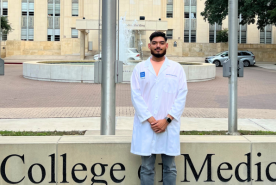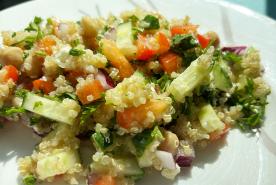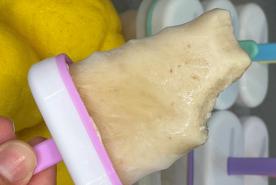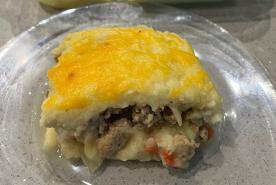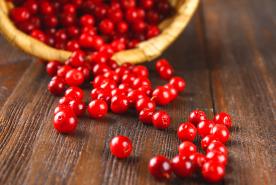Making healthy food choices is important to us all, but it is even more important if you have kidney disease. Proper nutrition gives you energy to do your daily tasks, prevents infection, builds muscle, helps maintain a healthy weight, and can keep your kidney disease from getting worse. Is it possible to maintain a vegetarian diet after being diagnosed with kidney disease? The answer is yes. With careful planning, vegetarianism, or even part-time vegetarian eating, it's not only safe, but also beneficial to kidney disease patients.
A healthy eating plan gives you the right amount of protein, a proper balance of sodium, potassium and phosphorus, and vitamins/minerals when needed. Let's take a closer look at general nutritional guidelines for those with early kidney disease (30-50% of normal kidney function) who are not receiving dialysis treatments. Always check with your doctor or dietitian for specific concerns.
Protein
Protein is an important nutrient. Your body needs protein to help build muscle, repair tissue and fight infection. As a kidney patient, you may need to closely monitor the protein you eat to prevent wastes from building up in the blood. Depending on what your healthcare team has recommended for you in terms of meeting your protein needs, these are some foods that may be included in a carefully planned diet:
| Quality Protein | Serving Size = 7 g protein |
|---|---|
| Egg | 1 |
| Veggie type burger | ½ to 1 |
| Seitan (Wheat gluten) | 1 oz. |
| Beans, dried cooked | 1/3 - 1/2 cup |
| Tofu | ¼ - ½ cup |
| Tempeh | ¼ cup |
| Nut Butters | 2 tablespoons |
| Meat, Fish, Poultry | 1 oz. |
| Cottage Cheese | ¼ cup |
Sodium
Though vegetarian foods are healthy in general, some can be very high in sodium. Use as many fresh foods as possible and limit your use of the following:
- Convenience foods such as frozen meals, canned soup, dried soups, miso or packaged vegetable broths
- Soy-based cheese
- Processed dairy cheese
- Meat analogues — this includes such foods as tofu hot dogs, veggie burgers or other canned or frozen soy products
- Salt, soy sauce, tamari sauce or any spices that contain the words sodium or salt
Potassium
Routine blood testing for your potassium level is the best way to know your potassium needs. If your potassium level is high, try to limit fruit and vegetable choices to five servings per day.
A potassium serving size:
1/2 cup fresh fruit, canned fruit or juice
1 cup fresh vegetables
1/2 cup cooked vegetables
If this does not decrease your serum potassium to the normal range, limit these foods:
| High Potassium Limit 1 per day | |
|---|---|
| Textured vegetable protein | 1/4 cup |
| Soy flour | 1/4 cup |
| Nuts and Seeds | 1/4 cup |
| Dried, cooked beans or lentils | 1 cup |
| Dried cooked soybeans | 1/2 cup |
| Tomato products | 1/4 cup |
| Potatoes | 1/2 cup |
| Dried fruit | 1/4 cup |
| Tropical fruit | 1/2 cup |
| Melons | 1/2 cup |
If you use a lot of beans or textured vegetable protein, alternative protein selections may be needed in order to keep potassium levels from going too high. This will mean using more tofu, tempeh, seitan and eggs or, if you prefer, some meat, fish or poultry to meet protein needs.
Phosphorus
Dairy products, dark colas and processed foods, even vegetarian processed foods, can be a source of concentrated phosphorus. To keep your phosphorous in a healthy range, avoid dark colas, and processed foods containing phosphate additives. In addition, limit the following foods:
| High Phosphorus Limit 1 per day | |
|---|---|
| Milk | 1 cup* |
| Cheese | 2 ounces |
| Pudding or custard | 8 ounces |
| Yogurt | 8 ounces |
| Soy cheese | 4 ounces |
| Soy yogurt (non fortified) | 12 ounces |
Rice milk and up to two cups of soymilk per day can be used as a replacement for milk. Avoid commercial non dairy creamers as most contain phosphate additives.
Grains, Breads and Cereals
Whole grains are a means to fill out your diet with many healthy nutrients and fiber. Even though many whole grains are slightly higher in phosphorus than white breads and grains, the phosphorus in whole grains is absorbed less efficiently. This is because of a substance called "phytate" in whole grains that keep the phosphorus from being absorbed. For grains that are more processed and do not have phytates, phosphorus is absorbed almost 100%, while whole grains are only absorbed at 20-50%. So fill your diet out with at least 6 servings of whole grains per day. Good selections are whole grain pastas, brown rice, barley, quinoa, millet, couscous and amaranth.
Vitamins and Minerals
Almost all vitamins and minerals come from the foods you eat. Your body does not make these substances. People with healthy kidneys who eat a variety of foods from all the food groups can get lots of vitamins and minerals. Your kidney diet limits some food groups; therefore, you may not be getting all the vitamins and minerals you need each day. It may be important for you to take certain amounts of some vitamins and minerals in the form of supplements.
Most people will require a water-soluble vitamin without fat-soluble vitamins or minerals. Mineral levels will need to be checked individually to determine if a supplement is needed. Speak to your kidney doctor or dietitian. They can help you learn about vitamins and mineral supplements that could be necessary if you have kidney disease.
If you need help planning meals, your doctor can refer you to a registered dietitian with special training in kidney disease. A dietitian can help you choose foods that will give you the right nutrients in the right amounts, explain why diet changes you need to make are important, and answer your questions. To learn more about kidney disease and nutrition, visit our A to Z Guide.
Want an easy way to start eating less meat? Go Meatless Monday every week, and get regular tips and recipes by following #MeatlessMonday and learning more at MeatlessMonday.com.






